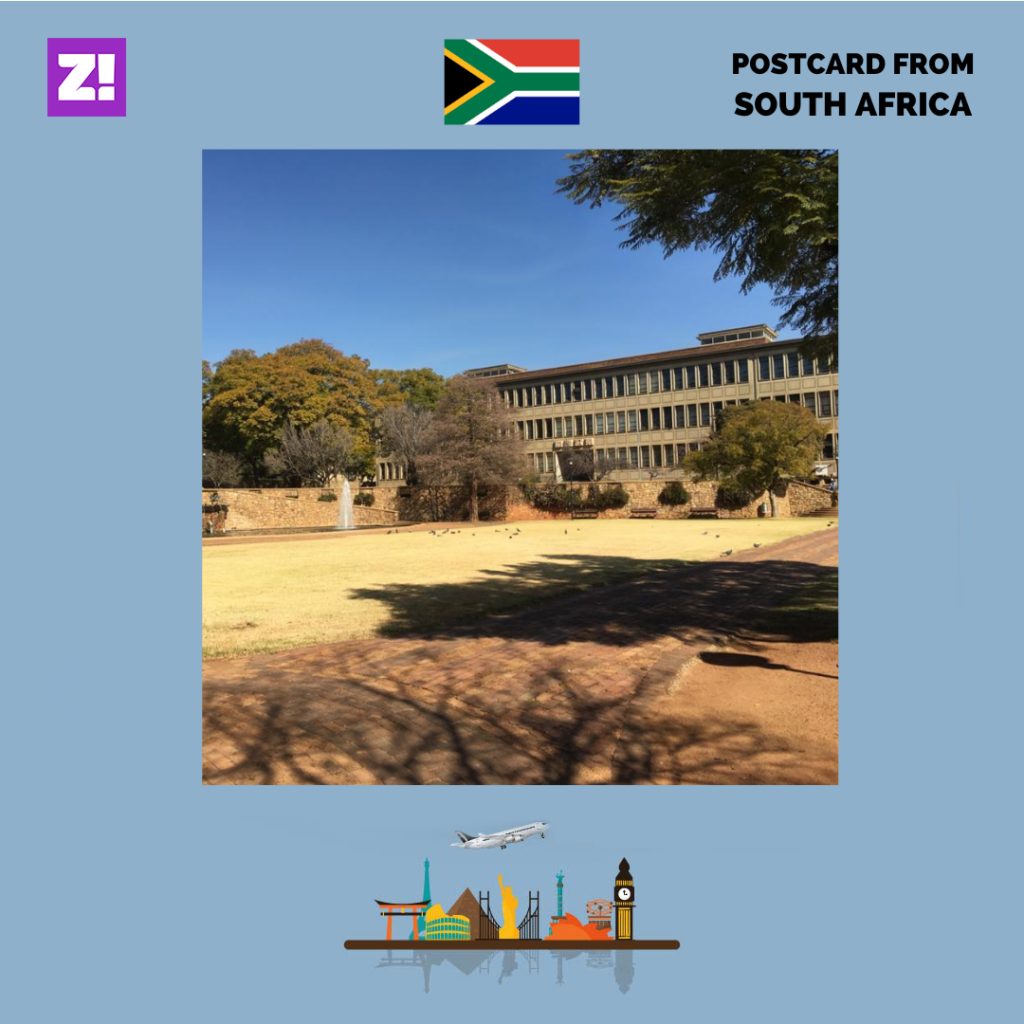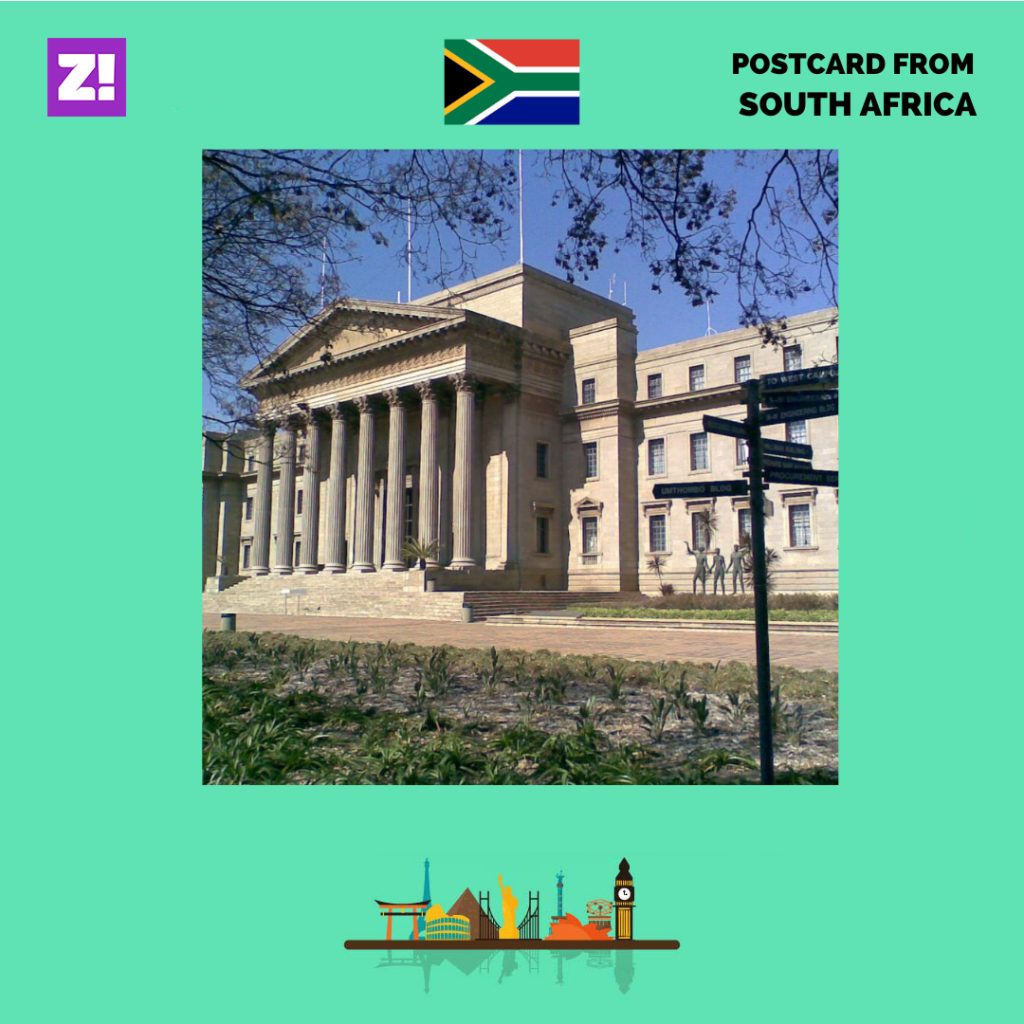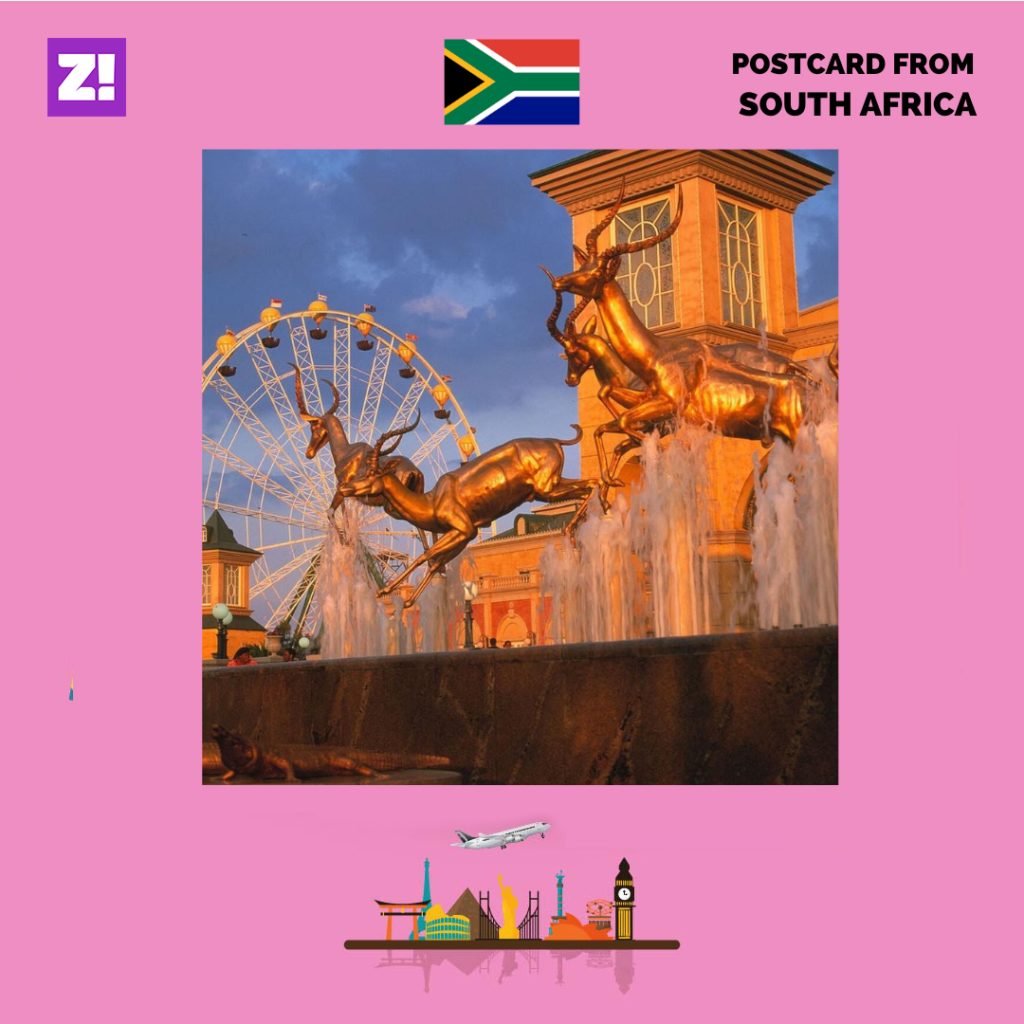The Nigerian experience is physical, emotional, and sometimes international. No one knows it better than our features on #TheAbroadLife, a series where we detail and explore Nigerian experiences while living abroad.
When you hear of Nigerians living in South Africa, one topic crosses your mind: Xenophobia. The subject of today’s Abroad Life today, Patrick, tells us what it is to live and study in a place many Nigerians are scared of, and why he plans on staying there for the foreseeable future.
First things first, what are you doing in South Africa?
I’m here as a fellow for the Open Society Foundation on Investigative Journalism at the University of the Witwatersrand, in Johannesburg. I arrived in February 2020 and started lectures on that same day.
No time to settle?
None at all.
The fellowship is all about data and investigative journalism. Five people were selected: one Ugandan, a Nigerian [ me], and three South Africans. It’s actually a practical fellowship, so apart from attending lectures, we also do a lot of fieldwork.
At the end of the fellowship, we’ll be interns for investigative newsrooms here in South Africa for 6 months – the fellowship is for a year, followed by an internship for six months. This makes everything one year and six months. It’s been wonderful so far. It’s been a great learning experience and we’ve had amazing investigative journalists from all around the world as lecturers.
That’s awesome.
How has Covid-19 affected your learning experience?
The only thing the pandemic affected was physical learning because South Africa went on lockdown in March. Everything else has been normal because of tools like Zoom, Skype and WhatsApp. Although, it’s also been really disappointing not getting to meet more world-renowned investigative journalists one-on-one. Networking is a big deal and when you’re meant to meet someone in person and they end up talking to you through a Zoom call, it can be underwhelming.
Damn…sorry about that.
So are you studying full time, or…
No. I’m also working as a freelance journalist for whatever publication comes around. Recently, I received a grant from National Geographic to do a story on how COVID 19 affected Nigerian farmers and how they are coping.
Are you doing that as a story from South Africa?
I have colleagues back at home in Nigeria who are journalists and they do the fieldwork while I do the writing.
I’m curious though, how did you get admitted into the fellowship at the University of the Witwatersrand?
I had tried to apply for another fellowship three times and I kept getting rejected, so I decided to try this one out. The Open Society Foundation on Investigative Journalism fellowship started in 2019 to celebrate its 20th year in South Africa. They intend to let it run for three years. I applied in 2018 to be among the first set of people to be selected for the 2019 class, but that was unsuccessful. So I tried again last year and here I am for the 2020 class. I guess you could say that my tenacity paid off.

That’s awesome.
Can you walk me through the timeline from when you got the admission till when you got to South Africa?
I remember that I was notified on November 24th that my application was successful. I was really excited because apart from getting something I really wanted, I was really looking forward to some timeout from Nigeria. Additionally, I was also looking for a chance to add to my skills, get some exposure, and meet people in my field from all over the world – I knew I had a better chance of getting that in South Africa than in Nigeria.
After getting notified, I started all the visa processing.
By yourself?
Yes. They supplied the letters I needed: letter of acceptance, and letter of admission. After getting notified, I had to apply for admission. I got the admission and I also applied for other stuff like medical insurance.
It was a really hectic and overwhelming process.
Was there a possibility that your visa application would be denied?
Haha… Yes.
I was confident that I was going to get the visa but anything is possible. I’d have been extremely disappointed if I didn’t get the visa because I had been trying to get an opportunity like this for some time. Imagine getting it and being denied a visa at the final stage. That would have been drastic.
Okay. You moved there in February. How quickly did you settle in?
The department handling the fellowship had already paid for my accommodation, so, before I arrived, an apartment was waiting for me. Immediately I landed at the airport, I checked in with the security, and then I went to the apartment. I dropped my bags in my room and headed straight to the university for classes.
I think I arrived around 7 am and I had lectures by 10 am so I had to rush the whole registration process with the stress of being on a plane for hours without sleep.
After that day though, settling in was a bit easy for me even though it was a new environment. If you survived in Nigeria, there’s no place you can’t survive so getting around and meeting new people was easy. So I’d say in one week, I got accustomed to the environment.

So you were living normally in the space of one week?
Yeah but not 100%, I wasn’t entirely familiar with the whole environment but it wasn’t awkward anymore. I could go to the mall, to campus, and come back home with an Uber. Making friends was also becoming easy. I was even making friends and other connections before I got here so that made it easier. We’d just go out together and settle in together until Coronavirus made us all stay indoors.
When I hear that a Nigerian is in South Africa, I get scared because of the reported Xenophobia. Did you have that fear when you were leaving Nigeria, and how has that played out?
I wouldn’t say I had fear. It was more of a subconsciousness that there was a possibility of something like this. Before I got here, I spoke with a lot of Nigerians here and read wide about the dangers of coming to South Africa as a Nigerian, so I knew it was a reality.
Getting here, I met wonderful people who welcomed me warmly, I can’t lie about that. But I have also witnessed a lot of hatred for foreigners. Not only for Nigerians, but for people from Zimbabwe, Zambia, Lesotho, and other African countries. The narrative of other Africans coming to take their jobs and their wives is a real and prevalent one.
There’s a mindset that has been built in the media about African foreigners, so they [South Africans] tend to keep their distance even if they don’t have a reason to.
I have both male and female South African friends and we get along. Some of them ask questions about Nigeria that they find in the media. They watch Nollywood and know about Wizkid, Davido and all that but they’re in the minority.
What is a South African experience that you can’t forget?
This one might interest you – About two weeks after I arrived, I was getting my Student ID one day and I needed help locating a building. I ran into this South African babe who offered me all the help I needed. We got talking, and even went to get some drinks.
During the conversation, she just randomly said: “My mom would be so mad if she knew I was hanging out with a Nigerian.” To my face o. Then she started talking about how we would just come to take their jobs and commit crimes. She said she admits that South African men might be “lazy” but it was still their country and they didn’t need to be dominated.
Awkward…
Yeah. I downed the rest of my drink and called it a night. She did the same. We haven’t spoken since then. We’d see one another from time to time and just wave or say hi, but I’m not about to hang out with her anymore.
Crazy
In day to day living, how’s South Africa different from Nigeria?
The food, the dressing, and the crime.
Women here have a very liberal way of dressing that I couldn’t first understand because I come from Nigeria where stuff like that is majorly done conservatively.
The food is obviously different because it’s a different culture. And the crime rates are high. For some areas, it’s dangerous to walk even in the broad daylight. Just yesterday, I saw the video of a man in Johannesburg being grabbed by 5 people in broad daylight. People were recording but couldn’t help because they didn’t want any trouble. They [the robbers] also collected his phone and all his belongings. Not so long ago, my Kenyan friend was also mugged.

Do you feel unsafe?
I just know where to be and where not to be at different times. My area is relatively safe andI hope it stays that way.
I hope so too.
What’s the cost of living there like?
Feeding is pretty much normal. I could actually say that it’s cheap. I have not adapted to the local food so I go to the supermarket to buy my normal Nigerian foodstuff and cook myself.
Transportation is not expensive. I almost always use an Uber or the school bus to move around. I hear the trains and buses are very cheap as well, but I have not tried using them yet.
But house rent is extremely expensive. You’ll probably pay about N70k monthly for a self-contained room. And you have to pay every month. A room and parlor will probably cost you N100k a month. It might also depend on location too, but generally, it’s very expensive.
Omo
Would you advise a Nigerian to live in South Africa?
To be honest, I don’t know about coming here to hustle as a Nigerian. It might be toxic. But being here as a student has been nice for me. It basically depends on what you’re coming to do. To live and work here as a journalist is something I can advise. Maybe if you’re coming to work and the organization you’re working for has provided accommodation , then it’s nice too.

After your fellowship do you plan on coming back to Nigeria?
I’ve not decided but I am most likely to stay back and practice; I’ll work from here to see how it goes. Going to Nigeria won’t be to stay so I’m most likely staying here to practice journalism after my internship. I might leave for another country. To explore, and maybe further my academics and get other fellowships, but I’ll be based here before I decide.
So you’re one of the Nigerians coming to take South African jobs and women.
*wink wink*
Haha…I’m not here to drag their women with them. As for the job, it’s an open market where the best person will get it. Nobody is “stealing” anybody’s jobs. I’m not even looking to get a full-time job. I’ll keep freelancing




